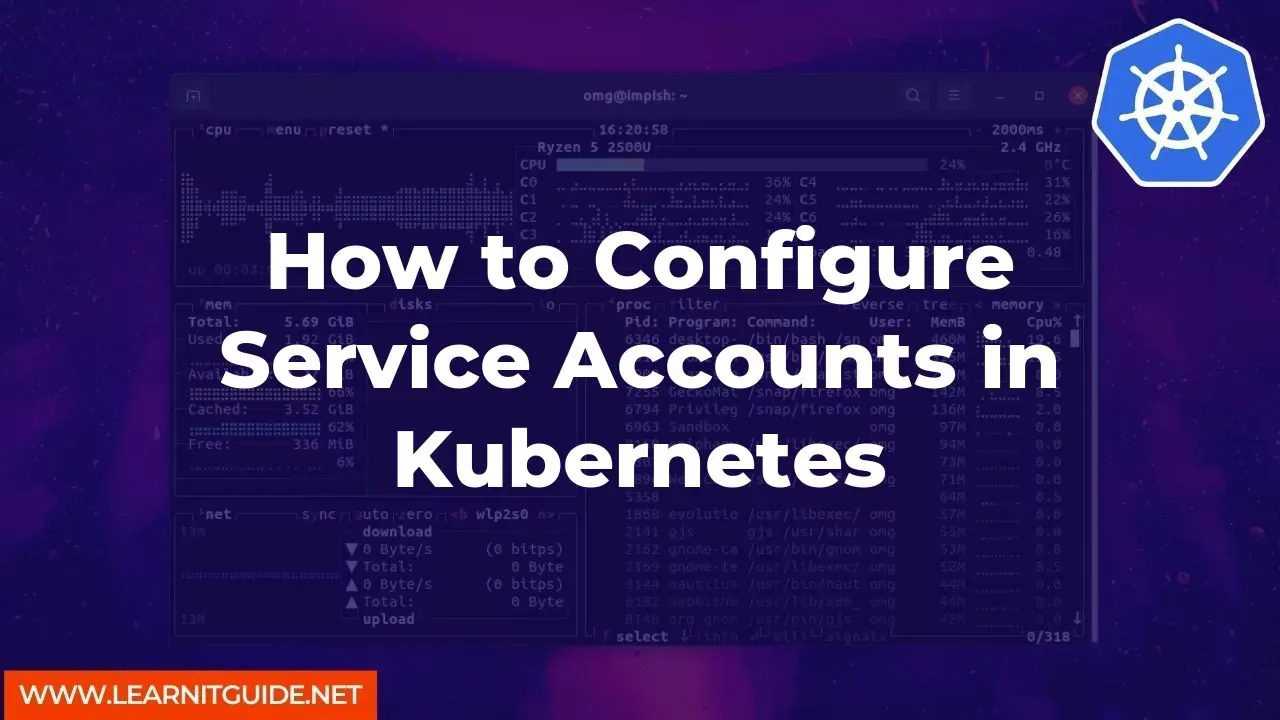Kubernetes is an open-source container orchestration platform that simplifies the management of containerized applications. It allows developers to deploy, scale, and manage containerized applications seamlessly. Service accounts are an essential part of Kubernetes, as they enable communication between pods and the Kubernetes API server. In this article, we'll explore how to configure service accounts in Kubernetes.
Understanding Service Accounts
In Kubernetes, service accounts are used to provide an identity to a pod. Each pod can have its service account, which is used to authenticate and authorize the pod to access Kubernetes resources. Service accounts are managed by the Kubernetes API server, and they are stored as Kubernetes objects in etcd.
By default, when a pod is created in Kubernetes, it is assigned the default service account of the namespace it belongs to. This service account is named "default" and has minimal permissions to access Kubernetes resources.
Creating a Service Account
To create a new service account in Kubernetes, you can use the kubectl create serviceaccount command. For example, to create a new service account named "my-service-account" in the default namespace, you can run the following command:
kubectl create serviceaccount my-service-account
This will create a new service account named "my-service-account" in the default namespace.
Assigning a Service Account to a Pod
To assign a service account to a pod, you need to add the "serviceAccountName" field to the pod's spec section in the pod manifest file. For example, to assign the "my-service-account" service account to a pod, you can add the following section to the pod manifest file:
spec:
serviceAccountName: my-service-account
This will assign the "my-service-account" service account to the pod.
Accessing Kubernetes Resources with a Service Account
Once a pod has been assigned a service account, it can use the Kubernetes API to access Kubernetes resources. To access Kubernetes resources, you can use the Kubernetes API client libraries, such as the Kubernetes Python client, to authenticate with the Kubernetes API server using the pod's service account.
For example, to authenticate with the Kubernetes API server using a pod's service account, you can use the following code:
from kubernetes import client, config
config.load_incluster_config()
v1 = client.CoreV1Api()
ret = v1.list_pod_for_all_namespaces(watch=False)
for i in ret.items:
print(i.metadata.name)
This code will authenticate with the Kubernetes API server using the pod's service account and list all the pods in all namespaces.
Service accounts are a crucial part of Kubernetes, as they provide an identity to a pod and enable communication between the pod and the Kubernetes API server. In this article, we explored how to create and assign a service account to a pod and how to access Kubernetes resources using a service account.
Related Searches and Questions asked:
That's it for this post. Keep practicing and have fun. Leave your comments if any.








0 تعليقات